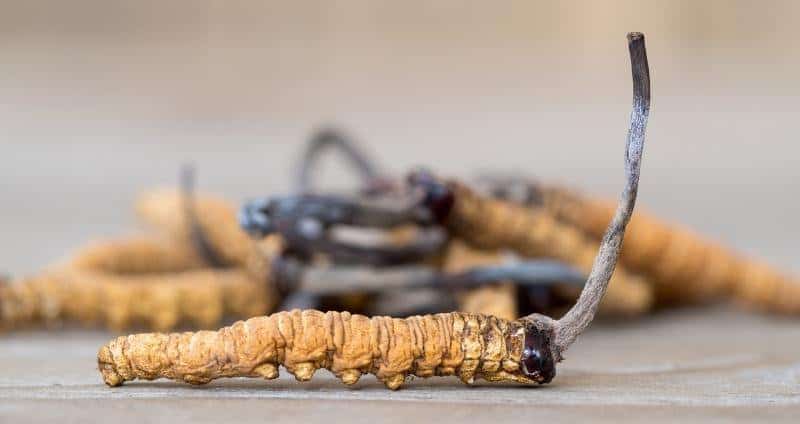If you're aiming to up your athletic game, Cordyceps militaris mushroom blend could be your secret weapon. This special blend has been proven to help you endure and perform better during intense workouts.
Imagine this: you're in the middle of a challenging workout, whether it's running, cycling, or any high-intensity activity. With Cordyceps, you'll notice that you can keep going for longer without feeling as tired. It's like having a reserve of energy that keeps you going strong.
Cordyceps does something amazing for your body. It helps your muscles use oxygen and energy more efficiently, so you can push yourself harder without burning out quickly. It's like upgrading your body's engine to turbo mode, so you can keep up the pace and outperform your previous limits.
Whether you're a sports enthusiast, love cardio workouts, or just want to stay active, Cordyceps can make a real difference. The study "Cordyceps militaris Improves Tolerance to High-Intensity Exercise After Acute and Chronic Supplementation" by Katie R. Hirsch and her team, published in 2016, supports these benefits. This research involved twenty-eight individuals in a controlled study, and it found that Cordyceps can enhance your ability to handle intense exercise.
The following are the finding of the research:
The researchers rounded up 28 folks for their experiment, the average age of around 22.7 years, a mix of heights (around 175.4 cm) and weights (around 71.6 kg). They divided these folks into two groups. One group got to drink this mushroom blend containing Cordyceps militaris (let's call it the MR group), and the other group got a placebo drink (the PL group, which was just plain maltodextrin). Both these groups had to do high-intensity exercise.
Now, here's where it gets interesting. The researchers put the adventurers on exercise machines - first, a fancy cycle thing called an ergometer for a tough biking test. They measured how much oxygen their bodies used up during this tough exercise (that's the maximal oxygen consumption or VO2max). They also checked how long they could keep going at high intensity (time to exhaustion or TTE) and when their breathing started to really ramp up (ventilatory threshold or VT).
Then, they made them pedal on this bike for 3 minutes, checking how much power they could generate (that's relative peak power output or RPP). They even averaged out their power output (average power output or AvgP) and saw how much their power dropped over time (percent drop or %drop).
Here's the twist - for the first week of sipping their drinks, nothing much happened. Both the MR and PL groups were pretty similar in their performance. But then, magic started happening after 3 weeks.
The MR group, the ones with the mushroom blend, suddenly got a boost. Their maximal oxygen consumption went up, showing that they were better at using oxygen during exercise. And check this out, their endurance shot up too - they could pedal longer before getting tired (time to exhaustion increased by +28.1 seconds after 1 week and +69.8 seconds after 3 weeks). Even their breathing threshold went higher (VT increased by +0.7 l·min−1).
The PL group, who had the placebo, didn't have any big changes in their performance. Their VO2max and TTE barely budged.
So, what's the big takeaway? Regular consumption of Cordyceps mushrooms increases athletic performance. Your body gets better at handling intense workouts, and you can go the extra mile without running out of steam.
The research concluded that consistent supplementation with a Cordyceps containing mushroom blend may enhance tolerance to high-intensity exercise, leading to improvements in maximal oxygen consumption (VO2max), time to exhaustion (TTE), and ventilatory threshold (VT). These benefits appear to be more pronounced with consistent and longer-term supplementation (three weeks). The study also highlights that greater benefits could potentially be achieved through constant supplementation.
So, if you're looking to level up your workouts and smash your personal records, Cordyceps might just be the boost you need.


